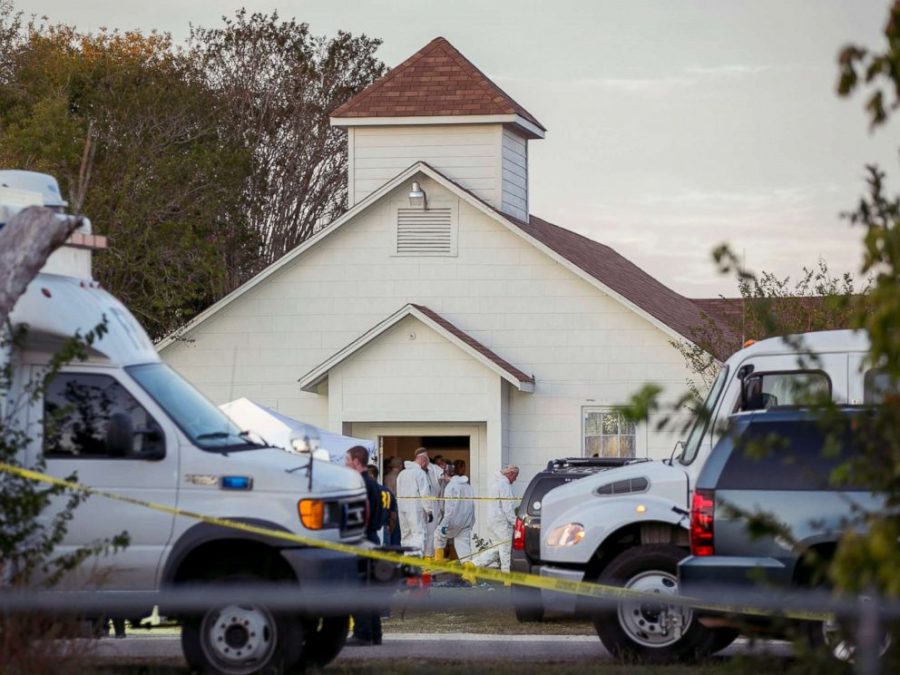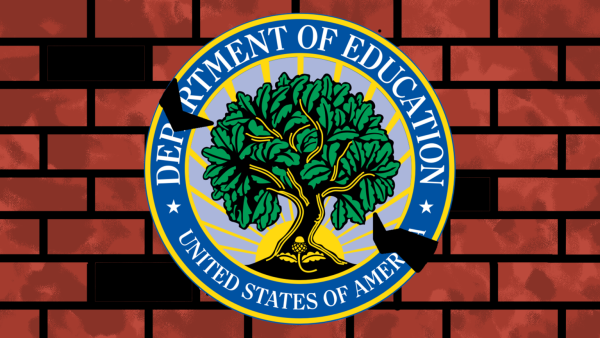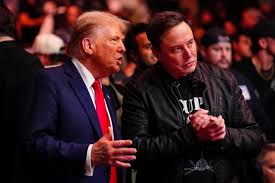Gunman Murders 26 in Rural Texas Church
On Sunday, November 5th, a rural Baptist church in Sutherland Springs, Texas suffered a heinous act of violence, the latest mass shooting in America. Gunman Devan Patrick Kelly entered the church just after the 11 o’clock am service and gunned down 26 parishioners. In this instance, he turned a small town in rural Texas into yet another national tragedy. He was armed with a Ruger semi-automatic rifle and had multiple rounds of ammunition strapped to his chest using a military-style vest. He was then met with a rifle shot coming from next door to the church, dropped his weapon, and fled in his vehicle. Two civilian heroes emerged, one that shot at Kelly from his yard, and another who pursued him in a high-speed vehicle chase, informing police of their location. The victims included the majority of those inside the church, whose ages ranged from 17 months to 72 years old, and included the pastor’s 14 year old daughter. This was the largest shooting in the state’s history, leaving the small town reeling in shock, sadness, and anger. The sheriff of Wilson County, which includes Sutherland Springs, made the point that shootings such as these do not typically happen in small towns, and that there was a preconceived notion that rural areas are immune to these horrific acts of evil. Leaders across the country expressed sympathy for the victims, with Trump noting that his “thoughts and prayers are with the victims and families of today’s murderous attack” and Texas governor Greg Abbott asking “for God’s comfort, for God’s guidance and for God’s healing for all those who are suffering.”
The gunman’s motive is continuing to unravel in the ongoing investigation, and officials have ruled definitively that it was not racially or religiously motivated, which is generally the conclusion following a mass church shooting. They have begun to piece together a narrative for the motive, and more clues are revealing more information about the killer’s life that will lead to a definitive motive. To begin with, Kelly had ongoing domestic problems. There were numerous reports of domestic violence in his home against his ex-wife and stepson, including violent assault that resulted in major injuries for both, as well as brain damage for his stepson. Kelly was in the Air Force at the time, and was court martialed for these crimes and served a year in military prison following a bad conduct discharge. Both of those individuals attended First Baptist Church in Sutherland Springs. He also had a violent relationship with his mother-in-law, and killed his grandmother-in-law during the shooting at the church. There were also individuals who had attended high school with Kelly who said that he was a “creep,” acting in ways that would draw negative attention and reactions, especially from the girls. His social media exposed a fascination that Kelly had with mass shootings, as well as his fascination for high-powered rifles.
The question many are asking is this: How was this deranged, maniacal, convicted felon able to purchase a weapon? It was discovered Monday that the Air Force did not add the conviction of an assault charge against his stepson, a felony, to Kelly’s government file. This conviction, officials say, would have prevented Kelly from purchasing the guns used in the massacre. Air Force officials have acknowledged the problem, and the Pentagon’s watchdog is investigating the possibility that this was not an individual error. However, the gun control debate has emerged in full force following the shooting, with former President Barack Obama tweeting, “May God also grant all of us the wisdom to ask what concrete steps we can take to reduce the violence and weaponry in our midst.” Those that lean to the left, mostly Democrats, have argued for years that stricter gun laws would prevent many of the killers from obtaining the weapons to carry out a mass shooting. They also argue that Republicans are too close to the gun lobby, and act more out of a desire for money than doing what is right for the nation. Republicans, and those that lean to the right, argue that gun control is ineffective because criminals will obtain guns illegally, and that it is better for people to be armed to stop would-be killers than to make obtaining a gun more difficult for law-abiding citizens. Both sides are somewhat validated with this tragedy, and will likely result in nothing more than the controversial talk that surrounds the topic of gun control. The more liberal gun control argument holds true to this shooting only because the shooter did receive his weapons legally. This was due to an error in the Air Force records, but nonetheless, is true. Conservatives, including the president, have pointed out that the individual inside the church that used a rifle to shoot at Kelly validates the argument that had there been more armed citizens inside the church, he may have been taken out, or run off earlier in the situation. Regardless, politicians will continue to discuss the topic, which will likely result in neither an increase or decrease in gun control.
The continued mass violent killings in America will have to be dealt with, and there is no real consensus on how to do it. Is it the culture of violence in which some children are raised, or is it a rise in mental health issues? Do we attempt to take more than 300 million guns out of the hands of civilians or do we arm the masses and risk more gun deaths? These questions will be the continued subjects of debate for years to com; all the while more innocent people die.








